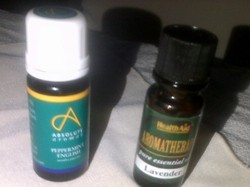The current recommendation for vaccination against rubeola (measles) is that all healthy children take it as long as there are no medical contraindications to its use. For most individuals, it is safe and effective. The complete series requires two injections of measles vaccine at least 28 days apart. A well-known approach is to administer it at 12 to 15 months of age and again between 4 and 6 years of age prior to entry into kindergarten.
There are variations, however, in protocols for vaccination. For example, a single dose of measles, mumps, rubella, and varicella (MMRV) may be sufficient. On the other hand, some parents prefer the approach with two doses of measles, mumps, and rubella (MMR) [1].

Measles Control
Immunization is one of several issues necessary for the control of measles.
International Travel
It is also essential to recognize that vaccination in some countries is not very available, and residents of those parts of the globe may travel to the United States. Hence, individuals who have not undergone immunization may acquire the condition when these travelers go to that country. Moreover, people who live in the United States must consider this before they travel to regions where use of the vaccine is inadequate [1, 2, 3].
Either way, exposure to the virus can happen when someone has never taken the vaccine, and this may lead to disease transmission when others have not obtained protection as well [1, 2, 3].
Immune System Compromise
Certain groups of people are susceptible to this and other illnesses because of their immune status. These include infants and children less than five years of age as their body defense systems have not yet fully developed. Individuals who are otherwise immunosuppressed will also be susceptible [1, 2].
Immunosuppression will include those who have received cancer chemotherapy or immunosuppressive treatments for an organ transplant. It will also include patients with human immunodeficiency virus (HIV) infection especially when it is advanced. However, clients with severe immunosuppression from HIV cannot take live measles vaccine. People who are HIV-positive, however, can take it as long as the degree of immune system compromise is not severe [1, 2].
Children who have HIV infection, regardless of stage of the disease, will be at risk for acquisition of measles and its complications [3].
Long-term therapy with corticosteroids will also place the patient in a state of immune system compromise.
Others at Risk
Pregnant women are also susceptible to measles virus infection and complications of the disease should it occur. Nevertheless, these women cannot take the vaccine, and it is best that they take it during the childhood years like most other clients [2, 3].
Another contraindication to use of the vaccine is the presence of cell-mediated immune deficiency from something other than HIV infection. Those who have received immunoglobulin products may not take it either [2].
Adults at least 20 years of age who have never completed a vaccine series will be at risk.
Finally, children whose nutritional status is poor will be at risk for severe measles infection with complications [3].
Conclusion
Measles is, in many cases, a medical condition which resolves quite well, but certain groups of patients are at risk for severe complications should they get the disease.
References
- Centers for Disease Control. (2015). Measles (Rubeola). Retrieved June 4, 2016.
- Kumar, D. and Sabella, C. (2015). Measles: Back again. Cleveland Clinic Journal of Medicine, 83, 340-344.
- World Health Organization. (2016). Measles. Fact Sheet. Retrieved June 4, 2016.
- The photo shows a child with measles rash on the third day of the disease course. Reprinted with permission from U.S. Centers for Disease Control.
Disclaimer
The information contained in this article is for educational purposes only and should not be used for diagnosis or to guide treatment without the opinion of a health professional. Any reader who is concerned about his or her health should contact their physician for advice.
You might also like
Anosmia - Can it be reversed ?Anosmia- loss of the sense of smell is one of the first signs of Parkinson's ...
Tudor remedies and cosmeticsYesterday I visited a Medieval Hall for a Tudor medicine and cosmetics talk. ...



 The Reality of Aspirinon 05/24/2021
The Reality of Aspirinon 05/24/2021
 An Old Microbeon 03/31/2021
An Old Microbeon 03/31/2021
 Coronavirus and Mental Illnesson 02/14/2021
Coronavirus and Mental Illnesson 02/14/2021
 Acute Ischemic Strokeon 12/25/2020
Acute Ischemic Strokeon 12/25/2020


Comments